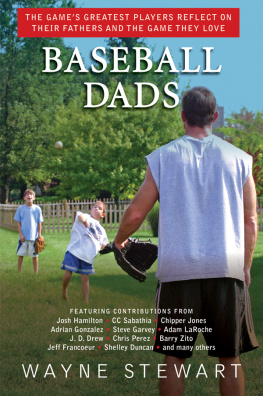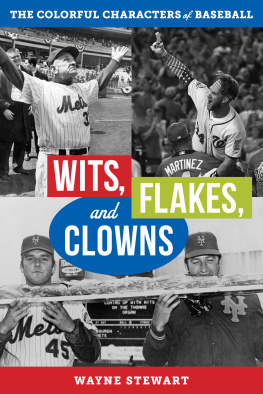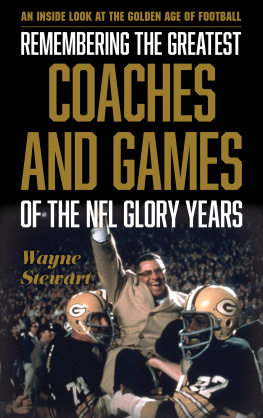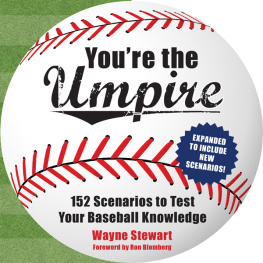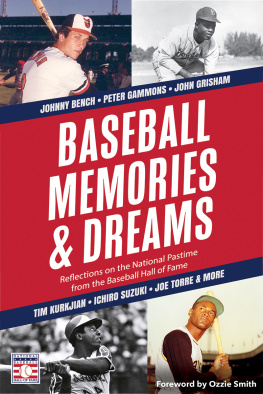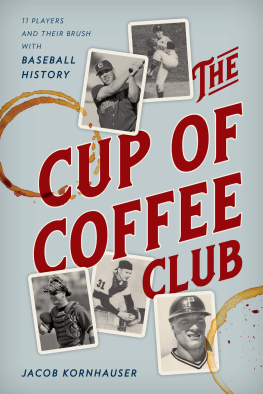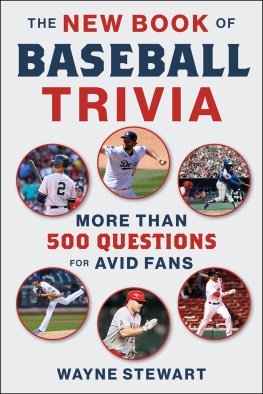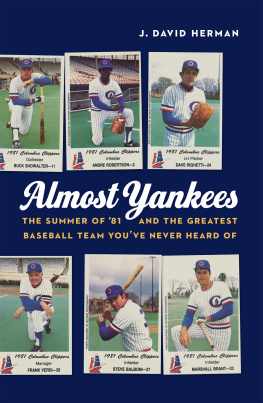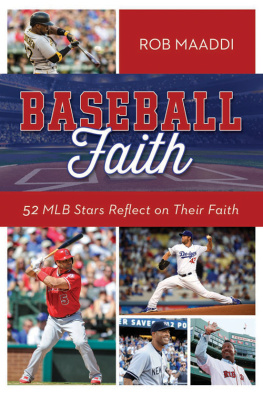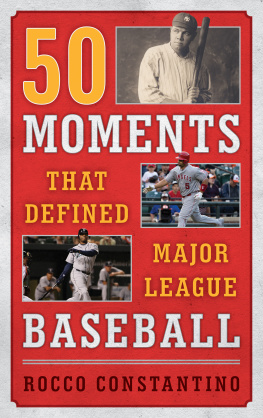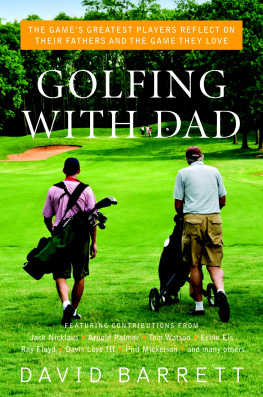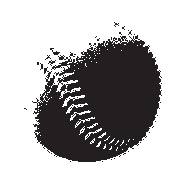Copyright 2012 by Wayne Stewart
All Rights Reserved. No part of this book may be reproduced in any manner without the express written consent of the publisher, except in the case of brief excerpts in critical reviews or articles. All inquiries should be addressed to Skyhorse Publishing, 307 West 36th Street, 11th Floor, New York, NY 10018.
Skyhorse Publishing books may be purchased in bulk at special discounts for sales promotion, corporate gifts, fund-raising, or educational purposes. Special editions can also be created to specifications. For details, contact the Special Sales Department, Skyhorse Publishing, 307 West 36th Street, 11th Floor, New York, NY 10018 or .
Skyhorse and Skyhorse Publishing are registered trademarks of Skyhorse
Publishing, Inc. , a Delaware corporation.
www.skyhorsepublishing.com
10 9 8 7 6 5 4 3 2 1
Library of Congress Cataloging-in-Publication Data
Stewart, Wayne, 1951
Baseball dads : the games greatest players reflect on their fathers and the game
they love / Wayne Stewart.
p. cm.
ISBN 978-1-61608-583-4 (hardcover : alk. paper)
1. Baseball players--United States--Biography. 2. Fathers and sons--United States.
3. Baseball--United States. I. Title.
GV865.A1.S799 2112
796.3570922--dc23
[B]
2012002371
Printed in China

For a book on the love between fathers and sons, the only
possible dedication has to be: To my father,
Owen J. Stewart (he was known by everyone as O. J. long
before the infamy attached to those initials). Also, again
quite naturally given the nature of this book, I dedicate this
book to my two sons Sean and Scott, and to Seans son,
my wonderful grandson Nathan Stewart.

Acknowledgments
F irst, a big thank you goes out to the players who gave up their time, allowing me to interview them and to delve into their relationships with their fathers. My appreciation also goes out to the always-helpful Susie Giuliano of the Cleveland Indians communications department; Leah Tobin of the Boston Red Sox media department; and Mark Langill of the Los Angeles Dodgers. Thanks also to my editor Mark Weinstein for his enormous guidance on this book and throughout many years.
Reflections on Fathers and Sons
I n 2002 when I wrote Fathers, Sons, and Baseball, a book about the love between fathers and sons and their link with baseball, the first thought that sprang into my mind was a basketball story, not a baseball one. It was one which vividly portrays the way a devoted father feels about his son. Legendary coach Al McGuire, who won the national title at Marquette, once coached his son Allie. In his sophomore season Allie and George Frazier were competing against each other for playing time. Frazier felt he should have been getting more action than Allie, and told his coach as much. Candidly, McGuire told him, George, I love my son. For you to play, you have to be twice as good as him.
While one focus of Baseball Dads is baseball, by far the more important topic herein is the relationship between father and son. From the families that have produced three-generations of major league players to the father who spends hours playing catch with a sonwho possesses little talent and absolutely no chance of making it to the major leagues yet loves the gamethe warmth, pride, love, and even tenderness which spreads throughout families, handed down from father to son endures. The sharing of the love of baseball between a father and his son permeates this book like the aroma of sizzling bacon on a Sunday morning, wafting up to and awakening a sleeping boy. Baseballthe most succulent and nurturing sport of all for a dad and his son has been, and remains, a marvelous bonding experience.
This book touches on just a few former big league ballplayers whose sons also played in the majors; these relationships are often both complex and fascinating.
In my previous book the ramifications, both positive and negative, of being the offspring of a big leaguer were covered. One aspect of this unique relationship is the inherent risk of the son being overshadowed by the father. However, even when this happens to men such as Stan Musial, whose son Dick ran track at Notre Dame but never really got into baseball, they try to protect their sons and assuage any doubts or insecurities their offspring may have developed from being compared to their fathers. In fact, Stan once said that in some ways he was happy his son was not interested in baseballhe wanted what he knew to be best for Dick, and it wasnt a lifetime of baseball.
Clearly, for many it is not easy being the son of a superstar. In addition, if ones surname is unusual, unmistakable (e.g. Yastrzemski), or if a young player lugs around a name with a Junior attached to it (think, for example, Pete Rose, Jr. or Tony Gwynn, Jr.), theres no hiding from who you are or the pressure to match your dads legacy.
Then there are the fans inevitably high expectations and their sometimes unfair pre-judgments to cope with. As Cal Ripken, Jr. said when his son Ryan was selected to play in the 2011 Under ArmourAll-American Baseball Game, There are some positives associated with that [bearing the name Ripken], but in many ways theres a burden that comes with the last name. I think a lot of people sort of expect a lot out of him. Critics often are intolerant of the mistakes and the normal failures of sons of famous players. Ripken, Sr., by the way, is one of six men to manage his son in the majors, and the only one to manage two of his sons (Billy and Cal with the Orioles).
Mike Yastrzemski, Carls son, said, I just have to deal with it. Im not concerned with trying to impress somebody else. All Im concerned about is proving to myself that I can play. One of his minor league managers cautioned, Dont try to compare him to his father. That wouldnt be fair to him. Unfortunately, comparisons inevitably follow. Mike, who said his father was always there to talk baseball with, made an All-Star team when he was with the Birmingham Barons, but never made it to the Show.
In the June Amateur Draft of 2009 the Boston Red Sox drafted a high school outfielder, yet another Yastrzemski: Carls grandson Michael. He went late, in the thirty-sixth round on the final day of the draft, but Boston fans couldnt help but smile when they heard about the selection.
Baseball can be a cold business, but sometimes it shows a compassionate face. In June of 2002, the Red Sox signed thirty-three-year-old John Henry Williams, the son of the man who roamed left field just prior to Yaz, Ted Williams. The contract his son signed was one which placed him on a Red Sox rookie team in the Gulf Coast League. The move certainly seemed like it was all just a goodwill gesture (with Ted orchestrating things for his son just a few weeks prior to his demise) because John had never played pro ball before. The media gave John Henry the nickname The Kids Kid. One Boston official admitted the signing was unusual, but said that due to the prestige of Ted, the Red Sox had been willing to go beyond the norm. Needless to say, Johnunlike his fatherwas not cut out to be a major league, or for that matter, a minor league hitter. By August he was through; he announced he was quitting, giving up his dream of forging a career in baseball.
In the June 2010 baseball draft, three sons of the big league managers Jim Leyland, Bruce Bochy, and Ozzie Guillen, were selected by the team their fathers ran. Call it goodwill gestures, nepotism, or a sort of sage insider trading, but Leyland, for one, defended the selection of his son Patrick who, like Jim, was a catcher.
Next page
